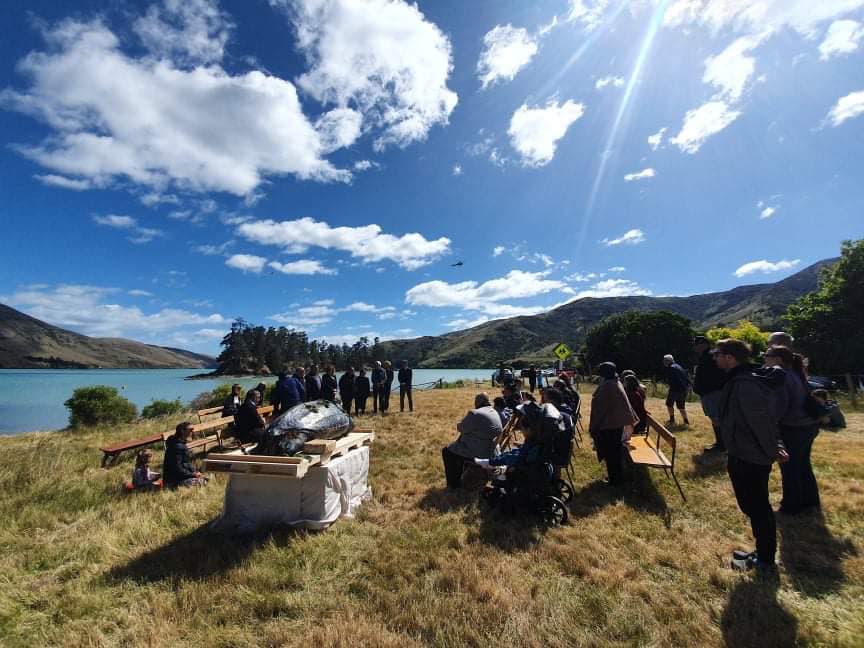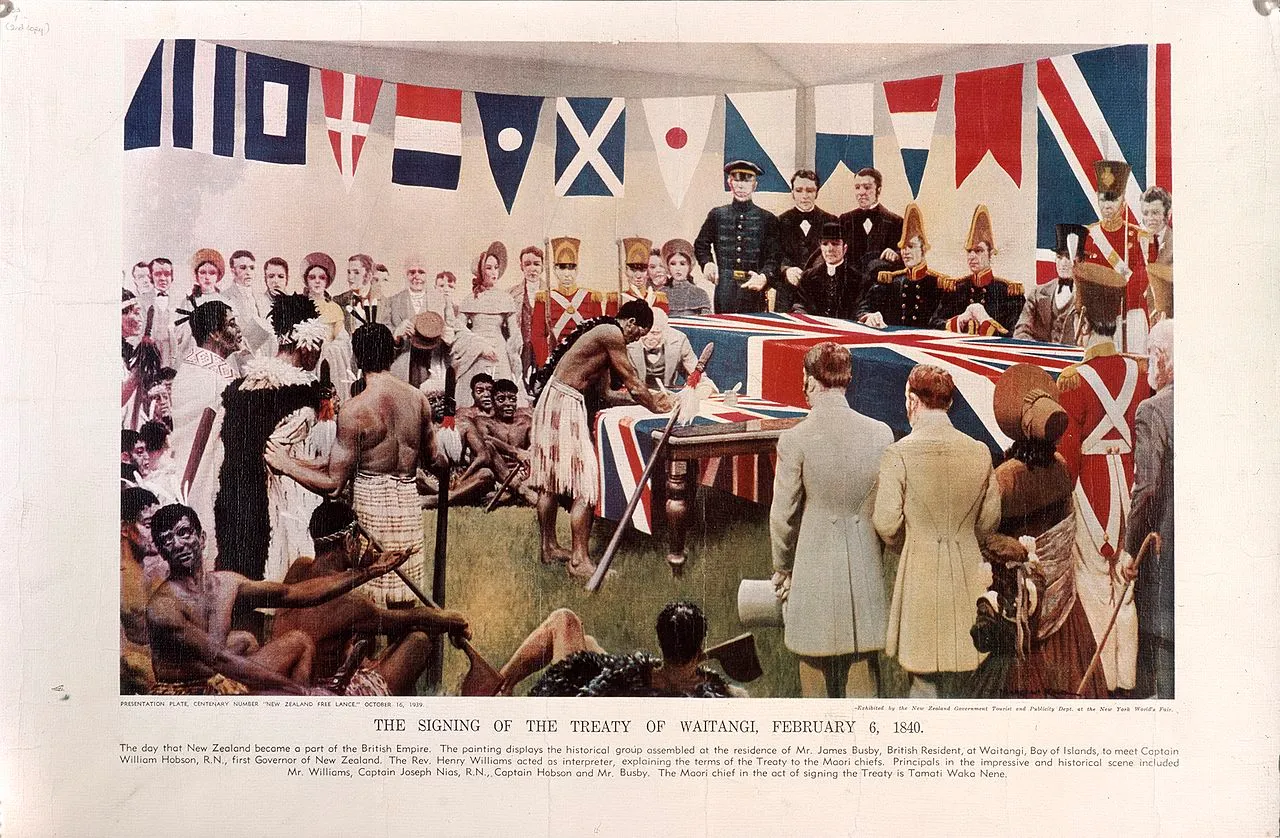Table of Contents
Hobson’s Pledge Trust
Sixty-nine per cent oppose a plan for two governments under a tribal compliance committee while 20 per cent said news of the plan would change the way they voted, according to a poll that finished on Friday
Researchers Pure Profile did an internet survey of 1003 voters of all age groups throughout New Zealand with 34 percent of respondents in Auckland.
This result came four days after another poll, by Roy Morgan, put support for Labour at 41.5 per cent, down from the 50 per cent support gained in last year’s election. See poll here.
That poll was done before National Party leader Judith Collins drew attention to the plan for segregated governments in her keynote speech to the National Party’s Northern Region conference last weekend.
Today, at the party’s lower North Island regional conference, Collins demanded that Prime Minister Jacinda Ardern be upfront about what aspects of the plan she has already implemented and what she plans to do next.
ACT leader David Seymour also drew attention to the plan two weeks before Collins, but reached a limited audience.
The proposal for two governments under a tribal compliance committee monitoring on behalf of the United Nations is a huge change in New Zealand’s constitutional arrangements and should be subject to a referendum and not sneaked in. We urge you to speak out against it.
Our petition against the segregated governments plan picked up more than 4700 signatures over the past week. If you have not done so already, click here to sign petition: Click here to sign petition.
If you have signed, please encourage another one or two people to sign to double or treble the number of petitioners.
The people behind tribal rule plan
A number of those who helped create the Government’s tribal rule plan, that has probably been under way since November 1, 2019, when the He Puapua report was submitted to the Government, have been working on something like this for years.
Dr Claire Charters, who is associate professor of law at Auckland University specialising in indigenous rights, chaired the working group that created the plan.
When questioned, Charters paradoxically said that the plan was “intended to unify rather than divide” despite having segregated governments. See here.
The plan reveals that Charters drew from the work of Margaret Mutu, also of Auckland University, where she is Maori studies professor, and Wellington lawyer Moana Jackson, another indigenous rights specialist.
Both have been working as the so-called Independent Monitoring Mechanism, which was established by the Iwi Chairs Forum in 2010 and which has been pushing for an “implementation” of the United Nations Declaration on the Rights of Indigenous Peoples since 2015.
Both have also been working as the Independent Working Group on Constitutional Transformation, also known as Matike Mai Aotearoa, and say they held 300 meetings with Maori from 2010 to 2015.
This grew out of a failed attempt in 2005 to get for New Zealand a written constitution based on the Treaty of Waitangi. They made another attempt to change the constitution in 2013, which also failed. Such a written constitution would be a plan to reform the government to operate under Maori sovereignty.
Mutu, who has mixed Maori-Scottish ancestry, drew attention to herself in 2011 when she declared, during a debate on immigration, that unless New Zealanders had Maori ancestry they could only be regarded as guests in New Zealand. See Mutu doesn’t speak for me.
Jackson advocates for a separate justice system for Maori. He also told the Waitangi Tribunal during the Paparahi o Te Raki claim that he did not think that the chiefs ceded sovereignty in 1840. See Interview with Moana Jackson.
Thousands spent to honour ‘ancestor’ turtle
Just when you think you had reached peak absurdity, the Taxpayers Union revealed that $11,742.31 was spent transporting a dead leatherback turtle from Banks Peninsula to Wellington, storing it in a freezer for 21 months, then sending it back down to where it washed up for a decent and fully-catered burial.

The turtle was transported to Te Papa in Wellington for research that did not eventuate.
A Ngai Tahu representative was upset that he wasn’t told about the turtle and told media of “a sense of grief and sadness that they didn’t have the opportunity to grieve for our kaitiaki, for our tipuna.” “Kaitiaki” probably means something they were supposed to be guardian of, and “tipuna” means “ancestor”.
One female leatherback turtle was tracked for more than 12,000 miles round-trip across the Pacific Ocean, from Papua in Indonesia to the northwest coast of the United States.
We think it is absurd for anyone to think that they could act as guardian for such a travelling turtle, and bizarre to believe that the turtle was an ancestor.
But also utterly bizarre that taxpayers were expected to pay for the storage of the turtle and its return to Christchurch for a “decent burial”.
Submit against draft history curriculum
If you are alarmed that your children and grandchildren may be indoctrinated about the evils of colonisation through a heavily biased history curriculum, you should at least send in a submission.
We have set up a New Zealand history curriculum page on our website, and urge you to submit. Go to curriculum page.
Two detailed submissions are posted for inspiration. See See Roger Child’s submission. and here Fostering guilt.
Schools now ‘unteaching’ racism
Unteach Racism is a new initiative from the Teaching Council that assumes that racism is something that is learned and therefore can be unlearned. They want teachers to unteach it.
However, the project appears mainly interested in racism as directed at Maori. There is no mention of racism directed at other groups, and no apparent interest in racism by Maori.
The other two phrases that stand out in the eight gobbledegook goals are the “inherent importance of cultural competency” and “educational equity”, with teachers required to ensure that all pupils achieve the same outcomes irrespective of skills or background.
Of course, the project “reflects a commitment to Te Tiriti o Waitangi” (that would be the 1985 retranslation, not the 1840 document signed by chiefs), which “requires the injustices caused by colonisation to be addressed” (didn’t see anything about colonisation in the Treaty). See Unteaching racism.
The people who brought you this are: Nicola Ngarea (chair), Clair Edgeler, Clare Wells, Dagmar Dyck, Elg Anderson, Frian Wadia, Jenny Ritchie, Lorraine Carr, Michael Rondel, Pat Newman, Patrick Walsh, Pip Woodward, and Ripeka Lessels. See Teaching Council.
Marine title granted to Bay of Plenty iwi
The High Court has granted a Bay of Plenty iwi customary title to several marine areas, despite having their claimed exclusive occupation of the area interrupted by having land confiscated.
The ruling involves several hapu, in an area between Whakatane and Opotiki.
Our petition, which asks Parliament to amend the Marine and Coastal Area (Takutai Moana) Act 2011 to restore public ownership of the coastal area, put all claims through the High Court, and repeal customary marine title, while affirming customary rights has picked up 28,550 signatures.
We need your support. The petition may be signed at https://www.change.org/beaches4all
Please share so others can discover The BFD.









